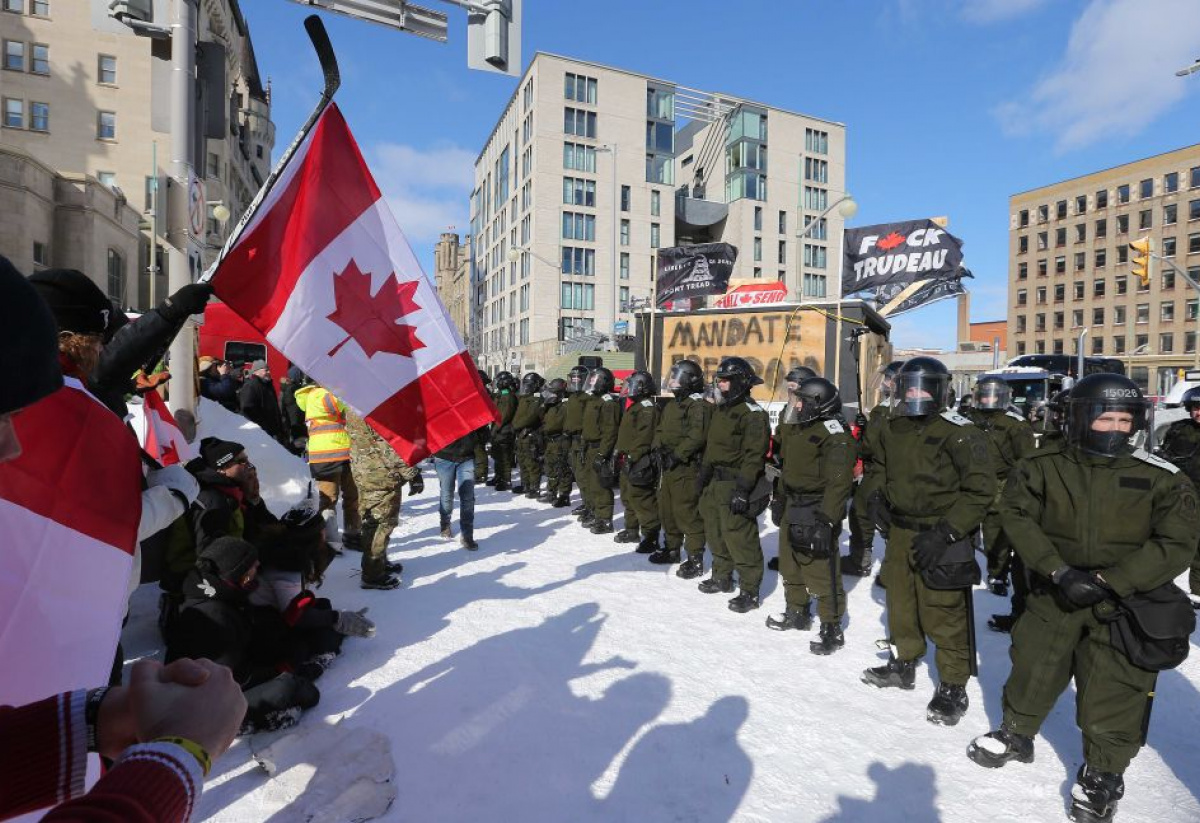Analysis
The Trudeau Government’s Weak Case for Emergencies Act

November 25th marked the conclusion of the Public Order Emergency Commission’s investigation into the legality of the Canadian Prime Minister’ invocation of a controversial, power-expanding law (the Emergencies Act). The commission’s final report will likely hinge on two questions. On both fronts the government’s case is weak.
The Commission’s first major question is: did the “Freedom Convoy” constitute a “threat to the security of Canada”. The Emergencies Act provides the government far-reaching powers that would normally infringe on citizens’ rights as found in Canada’s Charter of Rights and Freedoms. Accordingly, the act itself sets a high bar for justified use. This bar is that there be “an emergency that arises from threats to the security of Canada that are so serious as to be a national emergency”. Importantly, the Emergencies Act explicitly states that the Canadian Security Intelligence Service (CSIS) determines what constitutes such a “threat to the security of Canada". Thus, CSIS’ opinion on the threat level of the “freedom convoy” is very relevant for the answering of the commission’s question.
Accordingly, one of the pivotal moments of the commission was when it was discovered that CSIS concluded that the “Freedom Convoy” was not a “threat to the security of Canada”. This was revealed through an interview with the head of CSIS, David Vigneault, and the inquiry's lawyers over the summer. This development was clearly damning for the government.
However, the prime minister's security and intelligence adviser, Jody Thomas, argued that the commission should ignore CSIS’ conclusion. Thomas acknowledged that the Emergencies Act specifies that CSIS decides when a threat justifies the act's use. However, as she sees it, “security threats have evolved in the 40-year period since the enactment of the Emergencies Act". As such, her logic goes, the Emergencies Act should not refer to CSIS when determining whether there is a threat to the security of Canada.
Furthermore, the government’s argument has found a significant supporter. It has been revealed that Thomas’ view was shared by Vigneault -the CSIS head who originally said the “Freedom Convoy” was not a “threat to the security of Canada”. A summary of a November 5 hearing with the commission showed that, on the day before the Emergency Act’s introduction, Vigneault advised Prime Minister Trudeau to use the act. In explaining this advice, Vigneault stated that, the justification for using the Emergencies Act should not depend on CSIS’ evaluation of threat. Apparently, his view was motivated by advice he had received by lawyers from the department of justice.
Yet, regardless of Vigneault’s endorsement, it is still not clear as to why CSIS’ assessment of the “Freedom Convoy’s” should be overlooked. The Emergencies Act states, in black and white, that CSIS determines whether a “threat to the security of Canada” justifies the use of the Emergencies Act, no more no less. Thus, on what legal basis should these instructions be ignored? This was not answered during the commission.
Maybe it is the case that the Emergencies Act should not depend on CSIS declaring that there is a “threat to the security of Canada”. Maybe looking forward the act should be changed accordingly. However, this is utterly irrelevant to whether the implementation of the Emergencies Act was justified at the time of its implementation, which is what the commission wants to discern. The government cannot break a law simply because they think the law should be different.
The second question the commission will seek to answer is: did the government have reasonable grounds to believe that the “Freedom Convoy” was such a threat as to justify the use of the Emergencies Act? On this point, the government claims that it received a legal opinion drafted by the department of justice that says that the conditions for invoking the Emergencies Act had been legally met. It is allegedly based on this opinion that the government implemented the act, and thus, the government could claim that it had reasonable grounds to do so. However, the government has claimed privilege over the opinion, preventing this crucial piece of evidence from being disclosed to the commission. This amounts to the government saying, “you are just going to have to take our word for it”.
Thus, the government’s case appears quite weak. It is not clear why CSIS’ determination of threat should be ignored, and the government refuses to provide evidence that they had reasonable grounds to invoke the Emergencies Act. The commission’s final report should reflect this.
Featured image, Steve Russell/Toronto Star via Getty Images.